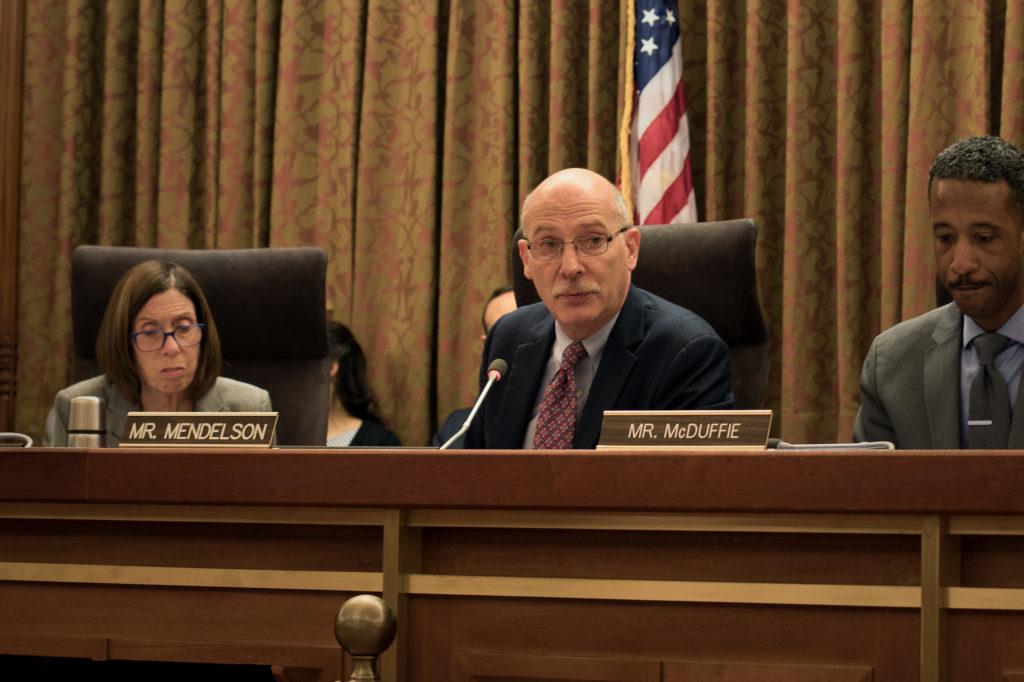D.C. Council members are proposing to split a major city department in charge of construction and city licenses into two sections.
The Council will separate the Department of Consumer and Regulatory Affairs and create a new division, The Department of Buildings, which will oversee construction, rental housing safety and property maintenance. Remaining functions – like housing safety, building codes and construction permits – will fall under the DCRA’s new title: The Department of Licensing and Consumer Protection.
Council Chairman Phil Mendelson, who introduced the bill last month, said in a release that reorganizing the DCRA is the best way to push for change in the troubled department. Advocates and community leaders have long complained about poor management, prolonged wait times for service and a lack of accountability in the agency.
“The hope is that streamlining the duties of each agency will make for more efficient oversight for licensing and proper monitoring of codes and construction,” he said in the release.
District residents told Council members about issues they faced when dealing with the DCRA at oversight hearings over the last year, according to the release.
The bill will allow the public and DCRA Director Melinda Bolling to share opinions about the legislation before it’s officially voted on, according to the release.
The Council will hold a hearing in the coming weeks to revise and vote on the proposal. The majority of the Council must approve the proposed legislation, but Mendelson said it likely won’t face much opposition because seven other council members co-introduced the bill.
The DCRA declined to comment on the bill, deferring comments to D.C. Mayor Muriel Bowser’s office.
“The administration is reviewing the proposed legislation,” Bowser spokeswoman Chanda Washington said in an email.
Washington declined to comment on the timeline for reviewing the bill and any details about the legislation.
The DCRA has faced a long line of scandals and complaints from D.C. residents. In recent years the agency has failed to regulate building codes, implemented unnecessarily lengthy construction request procedures and declined to address resident concerns about housing issues, according to Washington Post reports.
At-large Council member Elissa Silverman said splitting the agency will streamline the regulation of the health and safety of D.C. residences and businesses, and will help the agency focus on the core missions of each department.
“DCRA has been a problematic agency partially because it’s so large, it has so many important things to do I think it’s lost focus,” she said. “Homeowners, developers and businesses who rely on DCRA for their permits say that there is an excessively long time between application for permits and the granting of permits.”
The new building department would improve policies and processes that ensure buildings in the city are structurally sound and built to code, she said.
Silverman said the timeline for the DCRA’s reconfiguration is tentative because Mendelson is considering working on other major bills, like a proposed limit on the number of Airbnb units a D.C. resident can rent out.
She said a vote on the bill will likely happen this fall.
Foggy Bottom Association President Marina Streznewski said the proposal would allow the agency to devote more specialized attention to its many functions.
“The devil is in the details,” she said. “The DCRA is required to do things that are kind of in opposition to one another and if they were broken up into different agencies that would be cleaner.”
Streznewski said the FBA – which deals with DCRA for issues like housing permits and basic business licenses – is now working with the department to have dilapidated neighborhood houses cleaned, repaired or condemned. She said the DCRA could be more responsive when organizations like FBA try to file projects and that it is never simple process to interact with the agency.
“We need to really think this idea through on a very granular level,” Streznewski said. “That level of paying attention is essential.”





